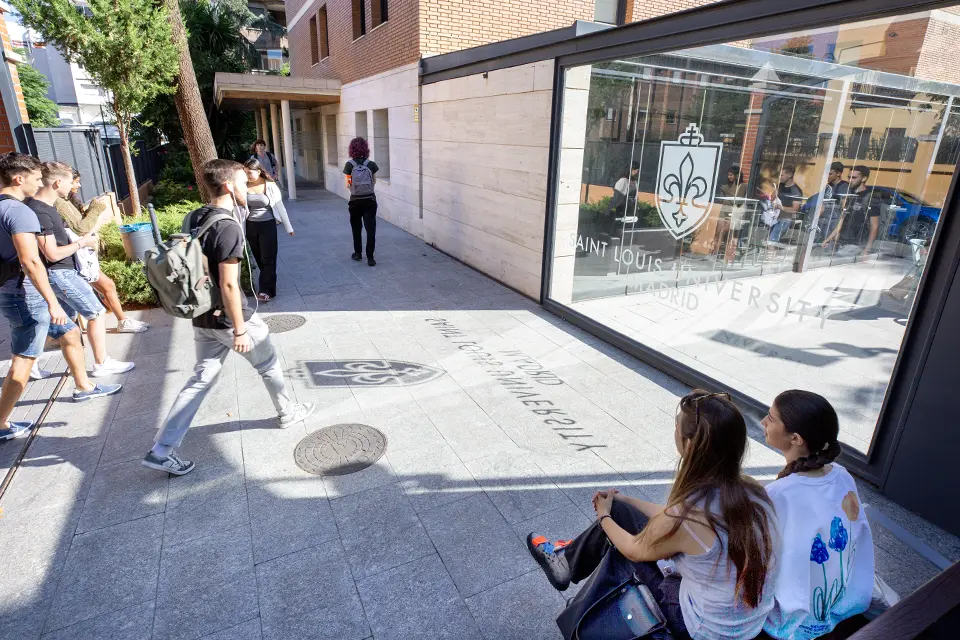SLU-Madrid Finalizes Affiliation with Jesuit, Cultural Associations
02/06/2024
In a slew of firsts, Madrid Campus executive leadership has reached agreements with prestigious networks in local government and private entities.
Saint Louis University's Madrid Campus prides itself on recently partnering with three Spanish organizations, reinforcing its standing as a four-year U.S. college campus in Europe.
SLU-Madrid is now part of UNIJES – Universidades Jesuitas, a network of Jesuit higher education institutions. The UNIJES mission is to endorse academic rigor, perform research to address societal issues and add to community dialogue.
The University is the eighth institution partner. Joining UNIJES is a milestone for SLU-Madrid, making it the only non-Spanish university to achieve this distinction. Other members are located in Andalusia, the Basque Country, Catalonia and Madrid — including Universidad de Deusto and Universidad Pontificia Comillas.
The Madrid Campus' recognition within Spain continues to expand by connecting with the Cátedra del Español y la Hispanidad de las Universidades de la Comunidad de Madrid ("Chamber of Spanish Language and Cultures for Universities in Greater Madrid"). The cátedra is a Madrid government-sponsored initiative to promote the Spanish language and its cultures in a globalized world. SLU-Madrid is the first American university to be associated with the cátedra.
In another historic first, SLU-Madrid is the first university affiliated with Fundación Consejo España-EE.UU. ("Spain-U.S. Council Foundation," in English), a private nonprofit whose board members represent major Spanish corporations, government bodies and academic institutions. Since 1997, the fundación has strengthened ties between the two countries.
Its American counterpart — United States-Spain Council — fulfills the fundación's mission on the American side of the Atlantic. The Spain-based equivalent is backed by Spain's Ministry of Foreign Affairs and the Embassy of Spain in Washington, D.C.
